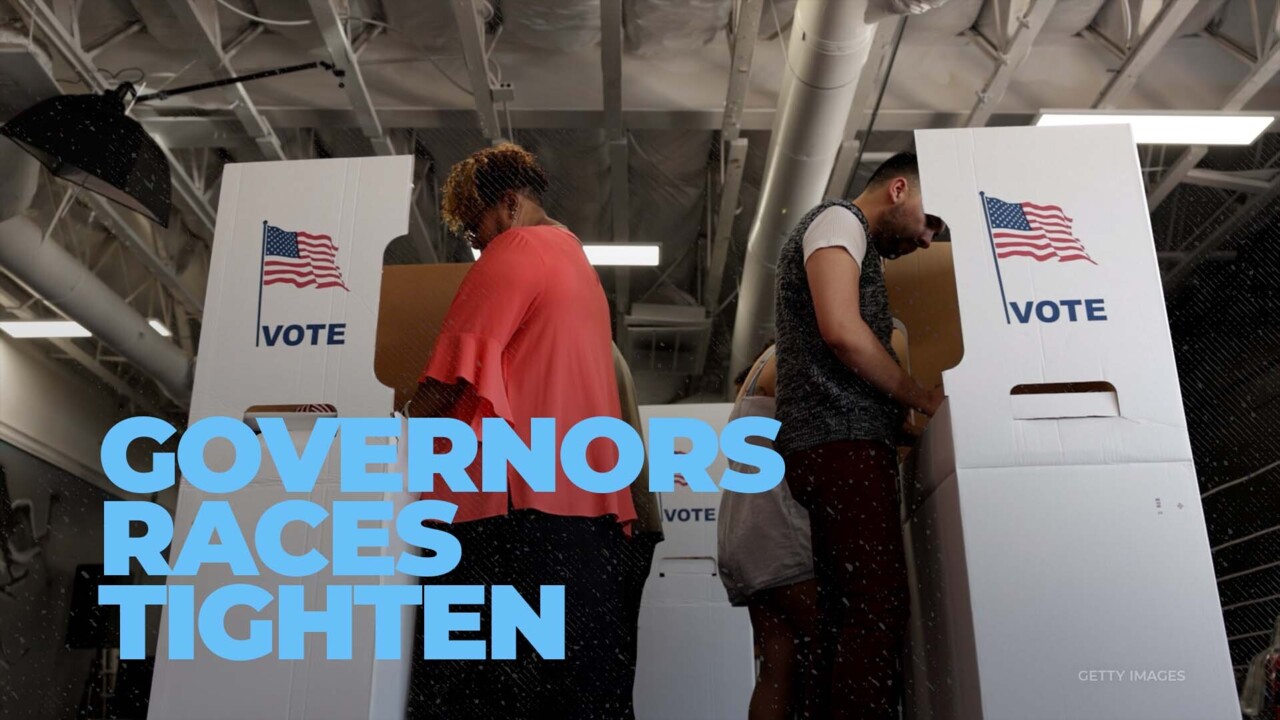
One week out from election day, polling indicates three key Governors races are tightening. Republicans have gained momentum in Arizona, Michigan and Wisconsin, races that range from toss-up to lean-Democrat.
In Arizona Former TV News Anchor Kari Lake, R, trailed as recently as September to Secretary of State Katie Hobbs, D. But according to an average of polls from Real Clear Politics, Lake has been able to slowly take the lead since that time and is now ahead by just over 3%.
As a border state, immigration enforcement has been a big issue in the race, in addition to abortion and inflation. Both candidates have tried to tell voters they relate to the tough economic times and have a plan to turn it around.
“I know the struggle that a lot of Arizonans are feeling right now – having to stretch to put food on the table, thinking about taking a second job, or not being able to pay the mortgage,” Sec. Hobbs said during a recent appearance on Face the Nation.
“We cut taxes on all kinds of everyday items like over the counter medications, school supplies, diapers, feminine hygiene products. We provide a state level child tax credit, and tax credits for people who want to go back to work on higher paying jobs to get career and technical education.
“What we are going to do in the short term is provide some relief from things like grocery taxes and rent taxes. That will put a half a billion dollars back into the pockets of hard working Arizonans,” Lake said on 12 News AZ.
In Michigan: Incumbent Gov. Gretchen Whitmer, D, held a 17 percentage-point lead in August over challenger Tudor Dixon, R. But since that time the race has become increasingly more competitive. Now the opponents are just 3% apart, according to the Real Clear Politics average.
Like the rest of the country, inflation is top of mind for voters and candidates in Michigan. But public education is also a key issue in the wake of the COVID pandemic. Michigan students’ scores in math and reading on the National Assessment of Educational Progress dropped this year compared to 2019, but the decreases were in line with the rest of the country.
The candidates addressed education and the pandemic’s impacts on it during their final debate.
“The reason kids were out of school during the pandemic is because we were working off of knowledge from 1918 when kids died from the last global pandemic. As a mom, all I was thinking about was saving the lives of our kids,” said Gov. Whitmer said when explaining her strategy for closing schools during the height of the pandemic.
“This is shocking to me that she thinks that schools were only closed for three months. Or maybe she thinks she can convince you that schools were closed for only three months. But you know better because your students are the ones that are desperately behind. And the test scores show she’s being dishonest about this,” Dixon responded.
In Wisconsin incumbent Gov. Tony Evers, D, had a 2.5% lead in August over challenger Tim Michels, R. That’s within many polls’ margin of error. But now the two are separated by a half of a percentage point.
With the race a toss-up, the candidates are making their case to voters as to why they can best get the economy back on track and what they will do to reduce the cost of living.
“My plan is this: To mitigate against inflation. We’re going to lower our taxes on middle class folks in Wisconsin by 10 percent. We’ll get rid of the minimum markup law on gasoline which could save people up to 30 cents on the gallon,” Gov. Evers said.
“We’re going to do massive tax reform, get more money in people’s pockets here in Wisconsin. And the hard working tax paying people of Wisconsin will spend more of that money on goods and services helping make our economy here even more robust,” Michels said.






